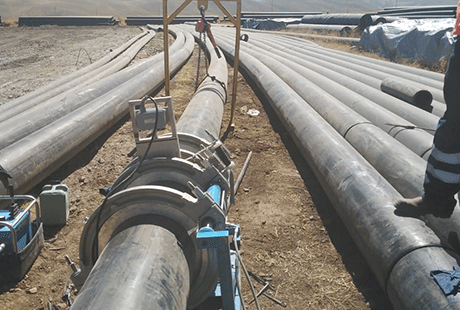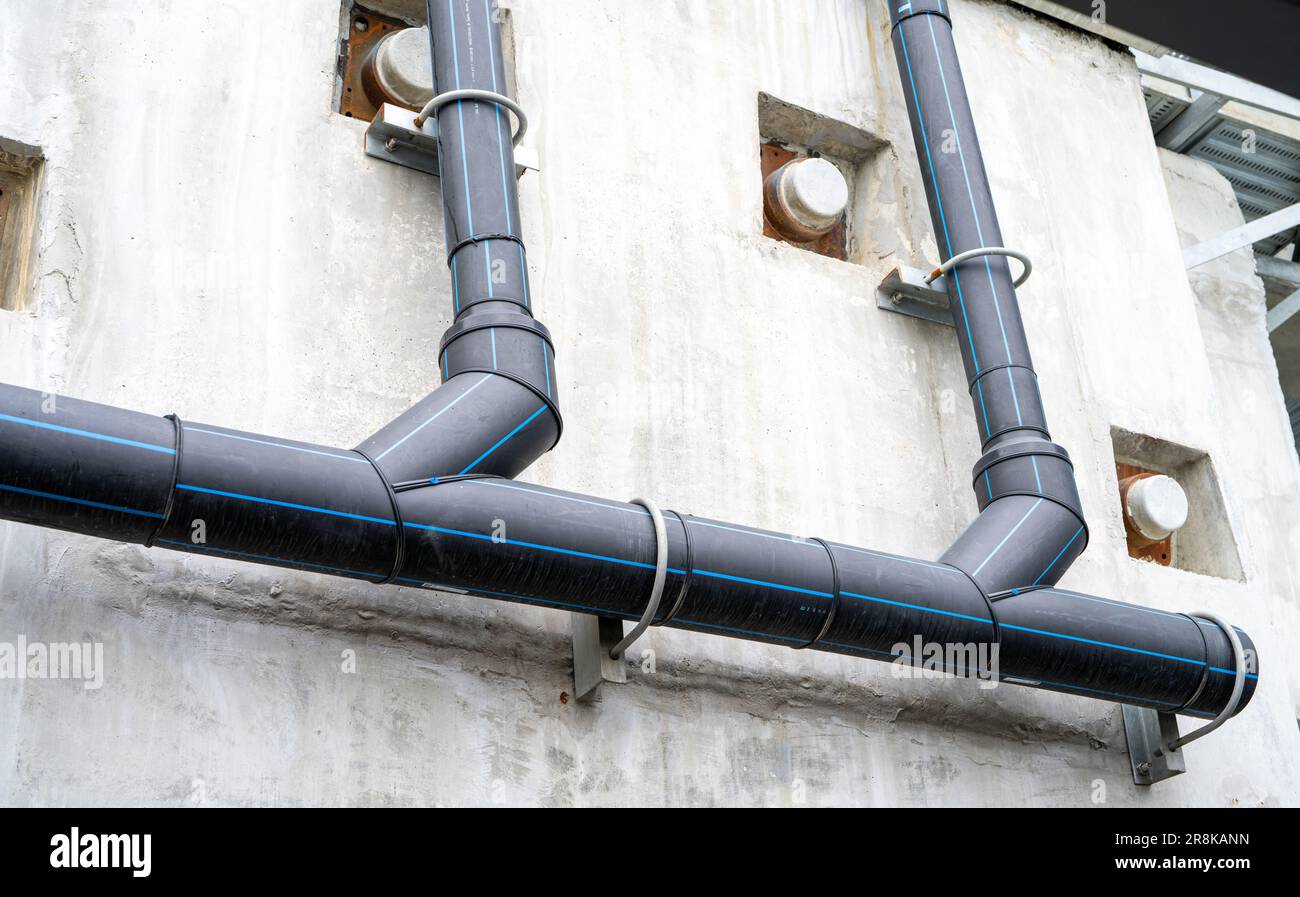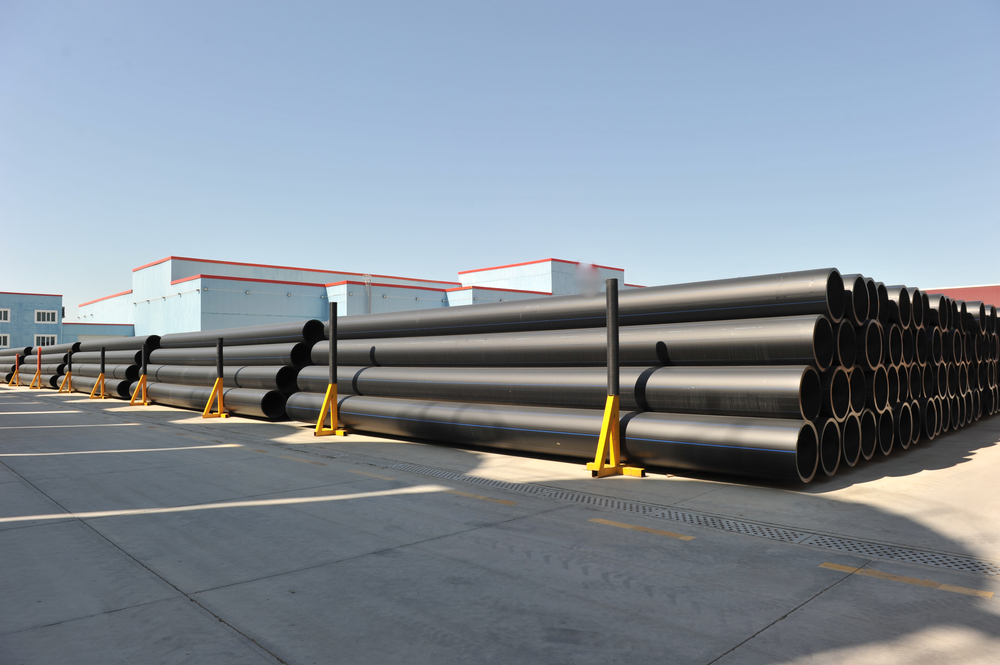Frequently asked questions about working with a Pipeline Manufacturer
Wiki Article
Discovering the Leading Pipeline Manufacturers: Quality, Integrity, and Development
The pipeline manufacturing sector stands at the intersection of quality, integrity, and development, driven by leading companies such as Tenaris and Vallourec. These makers are not only committed to generating high-performance materials however are also introducing sustainable practices that resolve modern-day ecological problems (Pipeline Manufacturer). As we check out the criteria that specify quality in pipeline remedies, it comes to be obvious that the landscape is swiftly evolving. What particular technologies are emerging, and just how are these developments shaping the future of pipeline infrastructure? The responses might redefine sector criteria in ways that are not yet fully comprehendedLeading Manufacturers Review
In the domain of pipeline manufacturing, a number of principals become leaders, each adding considerably to the industry's landscape. Companies such as Tenaris, Vallourec, and JFE Steel have established themselves as frontrunners by constantly supplying top quality products that satisfy rigorous sector requirements. Tenaris, renowned for its innovative solutions, concentrates on seamless and welded pipelines, catering primarily to the oil and gas field. Vallourec, a French multinational, concentrates on the manufacturing of premium tubular services, highlighting sustainability and advanced technology in its manufacturing processes.Similarly, JFE Steel, a significant Japanese manufacturer, is identified for its comprehensive range of steel pipelines, specifically those made use of in energy and framework tasks. Their commitment to research study and growth has actually enabled them to generate high-performance products that endure extreme ecological conditions. In addition, business like U.S. Steel and National Oilwell Varco have increased their market existence by expanding their product offerings and improving functional effectiveness.
These leading suppliers not only control the market yet likewise drive technology within the market, establishing benchmarks for top quality and dependability that players desire achieve. Their contributions are essential for satisfying the raising demand for reliable and sturdy pipeline solutions worldwide.
Requirements for Quality Assessment
Quality analysis in pipeline manufacturing depends upon two critical requirements: product resilience requirements and making procedure efficiency. Making certain that products meet rigorous toughness standards is important for the longevity and reliability of pipelines. Furthermore, enhancing the manufacturing procedure can boost performance while preserving excellent quality, inevitably affecting general performance and safety and security.Product Sturdiness Criteria
Guaranteeing the long life and dependability of pipeline products is vital for preserving framework integrity and functional performance. Product longevity standards play a vital role in examining the top quality of pipes, determining the efficiency and life expectancy of the products utilized in construction. Manufacturers should comply with a series of strenuous standards, including those set by organizations such as ASTM International and the American Petroleum Institute (API)These criteria assess numerous elements, consisting of corrosion resistance, tensile stamina, and fatigue efficiency. As an example, pipelines used in harsh atmospheres need materials that can hold up against chemical destruction, while those subjected to high-pressure conditions have to display extraordinary tensile stamina.
In addition, variables such as temperature changes and environmental problems should be considered, as these can substantially influence product habits gradually. Manufacturers typically utilize sophisticated screening methods, including sped up aging tests, to mimic lasting wear and assurance that materials exceed or meet sector benchmarks.
Manufacturing Process Effectiveness
Manufacturers' ability to optimize making procedure efficiency is crucial for generating premium pipelines that fulfill rigorous industry requirements. Efficiency in making directly influences cost management, production timelines, and overall item stability. To accomplish this, leading pipeline producers implement advanced techniques such as lean manufacturing, automation, and real-time information analytics.Lean producing concepts are essential in reducing waste and optimizing source utilization. By streamlining processes and getting rid of redundancies, makers can boost productivity while making sure consistent top quality. Automation innovations, consisting of robotics and computer mathematical control (CNC) machines, play an essential duty in improving precision and reducing human error, thereby elevating the reliability of the end product.
Additionally, the use of real-time data analytics permits manufacturers to monitor production procedures continually, allowing them to determine bottlenecks and make timely adjustments. This proactive approach not just improves effectiveness however additionally sustains quality guarantee protocols by making certain conformity with governing standards.
Dependability in Pipeline Solutions
Reliability in pipeline solutions is critical, as it directly impacts the security and performance of fluid transport systems. Trick factors consist of the longevity of products used, adherence to extensive screening and qualification requirements, and the incorporation of cutting-edge material remedies that improve performance. Recognizing these aspects is important for suppliers aiming to deliver reputable pipeline framework.Importance of Resilience
Accomplishing resilience in pipeline services is crucial, as it straight influences the long-term performance and security of framework. Durable pipes are necessary for decreasing upkeep prices and lowering the probability of devastating failures. This integrity is especially vital in markets such as oil and gas, water, and wastewater administration, where the effects of pipeline failing can be severe, both economically and eco.The products and manufacturing processes used by pipeline manufacturers play a considerable function in establishing the sturdiness of the last item. Utilizing premium resources, progressed innovations, and cutting-edge style concepts ensures that pipes can endure different stress factors, consisting of stress changes, temperature variants, and harsh atmospheres.
Furthermore, the toughness of pipelines is very closely linked to their ability to resist external factors such as soil activity, seismic task, and chemical direct exposures. Effective deterioration security approaches, such as finishings and cathodic protection, better boost the long life of pipes, securing them against damage gradually.
Buying resilient pipeline options inevitably translates to raised operational effectiveness, lowered downtime, and enhanced safety and security, attesting the important importance of resilience in contemporary pipeline manufacturing.
Checking and Accreditation Specifications
In the domain of pipeline solutions, strenuous testing and certification standards are important to guarantee the dependability and safety of framework. These requirements function as criteria for assessing the efficiency and toughness of pipeline materials and systems, validating they meet specific governing and industry demands.Testing processes usually include different approaches, including pressure screening, hydrostatic evaluations, and non-destructive screening methods. These evaluations are necessary for recognizing potential weaknesses or defects in the materials prior to they are released in real-world applications. In addition, qualification by acknowledged companies guarantees that suppliers follow established standards, which cultivates count on amongst stakeholders, consisting of professionals, engineers, and end-users.
Several prominent pipeline producers take part in continual monitoring and enhancement of their screening methods to adjust to advancing industry standards and technical developments. Conformity with requirements such as ASTM, ASME, and ISO not only improves product dependability but additionally lessens the danger of ecological occurrences connected with pipeline failings.
Ingenious Product Solutions
The development of innovative product services has changed the landscape of pipeline manufacturing, improving both performance and toughness. Advanced products such as high-density polyethylene (HDPE), cross-linked polyethylene (PEX), and composite products have become game-changers, offering exceptional resistance to rust, temperature fluctuations, and pressure variants. These products not only prolong the life-span of pipelines yet also reduce upkeep prices, making sure trustworthy lasting efficiency.Furthermore, producers are progressively adopting wise materials that integrate sensing units for real-time surveillance. This innovation enables aggressive maintenance, substantially boosting dependability by discovering leaks or architectural weaknesses prior to they intensify into essential failures. The assimilation of nanotechnology has actually additionally led to the advancement of finishings that improve the longevity of pipes versus abrasion and chemical direct exposure.
Sustainability is another vital emphasis, with producers discovering bio-based composites and recyclable materials that minimize ecological influence. As regulative criteria remain to progress, the emphasis on cutting-edge material options comes to be critical in conference stringent security and ecological needs. Eventually, these advancements not just enhance the dependability of pipeline systems yet also add to the overall performance and sustainability of energy transportation frameworks.
Innovations in Pipeline Innovation
Advancements in pipeline modern technology are transforming the market by boosting performance, safety, and environmental sustainability. Recent innovations concentrate on smart pipeline systems that use sensing units and IoT innovation to keep track of problems in genuine time, allowing proactive upkeep and minimizing the risk of failings. These systems can discover leaks, stress changes, and various other abnormalities, permitting rapid feedback and minimizing environmental influence.Furthermore, the growth of innovative products, such as composite and corrosion-resistant alloys, considerably extends the lifespan and integrity of pipes. Pipeline Manufacturer (American Plastics LLC HDPE Pipeline Manufacturer). These products reduce maintenance prices and enhance performance in harsh settings, making them optimal for gas, oil, and water transportation
Automation and robotics are playing a vital function in pipeline building and examination. Drones and robot tools help with surveys and assessments of hard-to-reach areas, guaranteeing thorough examinations without jeopardizing safety and security.
Ingenious designs, such as modular pipeline systems, permit for greater adaptability in installation and alteration, catering to the dynamic requirements of the power industry. With each other, these technological innovations not only boost functional efficiency yet likewise add to an extra sustainable and durable pipeline infrastructure, leading the method for a greener future.
Situation Studies of Success
Throughout different markets, successful implementations of innovative pipeline innovations demonstrate substantial enhancements in functional efficiency and safety and security. One significant case is the implementation of clever pipeline surveillance systems in the oil and gas market, where real-time information analytics have decreased leakage discovery times by over 50%. This not just minimizes environmental threats however additionally enhances the total integrity of pipeline facilities.
Additionally, a significant manufacturer implemented robotic inspection modern technologies in its pipeline maintenance operations, causing a 40% enhancement in evaluation effectiveness. This technique has streamlined upkeep routines and considerably lowered downtime.
These study highlight exactly how prominent pipeline manufacturers are leveraging advanced technologies to cultivate integrity and functional excellence, inevitably setting brand-new requirements for the industry. As these successes remain to unfold, they lead the way for further improvements in pipeline manufacturing and monitoring.

Environmental Sustainability Practices
Regularly, pipeline suppliers are focusing on environmental sustainability methods to reduce their environmental footprint and boost the durability of their items. This dedication is mirrored in various campaigns targeted at minimizing waste, conserving energy, and making use of sustainable materials throughout the manufacturing process.
Several suppliers are embracing innovative innovations that reduce discharges and power consumption. The integration of automated systems and energy-efficient equipment aids enhance manufacturing while reducing reliance on fossil fuels. Additionally, companies are significantly transforming to eco-friendly materials, such as recycled metals and bioplastics, which not only reduce the environmental impact but also promote a circular economy.
Moreover, pipeline manufacturers are implementing rigorous lifecycle assessments to evaluate the ecological effects of their items from creation to disposal. This strategy allows them to determine opportunities for enhancement and foster responsible sourcing and waste monitoring methods.
Collaboration with ecological companies additionally enhances these initiatives, as producers look for to align their procedures with global sustainability objectives. Inevitably, these ecological sustainability practices not only add to a much healthier world however also placement producers as liable leaders in the market, interesting ecologically conscious stakeholders and consumers alike.
Future Trends in Pipeline Manufacturing
As the need for extra sustainable and effective framework grows, pipeline manufacturing is positioned for considerable advancements that will improve the industry. Trick fads anticipated in the coming years consist of the assimilation of advanced materials, such as corrosion-resistant and composite alloys, which improve resilience while minimizing environmental effect. Manufacturers are additionally expected to embrace innovative production methods, like additive manufacturing and automation, to streamline processes, reduce waste, and lower expenses.Furthermore, the rise of wise pipeline innovations, including sensing units and IoT tools, will certainly enable real-time monitoring and predictive maintenance, thus enhancing security and operational effectiveness. This electronic transformation will certainly not just optimize resource management but additionally help with compliance with strict environmental laws.
Sustainability will certainly stay a central focus, driving manufacturers to spend in eco-friendly practices, consisting of energy-efficient manufacturing techniques and recycling initiatives. As the international emphasis on climate adjustment intensifies, pipeline makers will certainly need to adjust by establishing services that meet both environmental and economic needs.
Frequently Asked Concerns

What Industries Primarily Make Use Of Pipeline Products From These Manufacturers?
Pipeline items are mostly used in markets such as oil and wastewater, gas and water administration, chemical handling, mining, and construction. These industries count on effective, durable, and risk-free transportation of liquids and products.
Exactly How Do Manufacturers Make Certain Compliance With International Pipeline Specifications?
Manufacturers assure compliance with international pipeline requirements by applying strenuous quality assurance procedures, carrying out normal examinations, adhering to well-known governing structures, and buying staff member training to advertise awareness and understanding of security and top quality needs.What Is the Ordinary Life-span of Pipelines From Leading Manufacturers?
The ordinary life-span of pipes from leading manufacturers commonly ranges from 30 to 100 years, depending on material, environmental conditions, and upkeep methods. American Plastics LLC HDPE Pipeline Manufacturer. Routine evaluations and adherence to industry criteria markedly affect durability and performanceExist Certifications Certain to Pipeline Manufacturing Quality?
Yes, numerous accreditations exist for pipeline producing quality, consisting of ISO 9001 for quality monitoring systems and API requirements particular to pipes. These qualifications guarantee adherence to strenuous security, performance, and ecological standards within the market.How Do Manufacturers Handle Pipeline Upkeep and Repair Works?
Manufacturers generally apply a positive maintenance method that includes normal evaluations, monitoring systems for very early discovery of concerns, and a structured fixing procedure. This approach assurances pipeline integrity, lessens downtime, and enhances general functional effectiveness.Quality evaluation in pipeline manufacturing hinges on two essential requirements: product sturdiness criteria and manufacturing procedure performance - Pipeline Manufacturer. Product longevity criteria play a vital function in evaluating the high quality of pipes, dictating the efficiency and lifespan of the materials used in building and construction. The materials and producing processes employed by pipeline producers play a substantial duty in figuring out the longevity of the final product. The average life expectancy of pipelines from leading producers commonly ranges from 30 to 100 years, depending on material, environmental conditions, and maintenance methods. Yes, different qualifications exist for pipeline making top quality, consisting of ISO 9001 for top quality monitoring systems and API criteria details to pipes
Report this wiki page